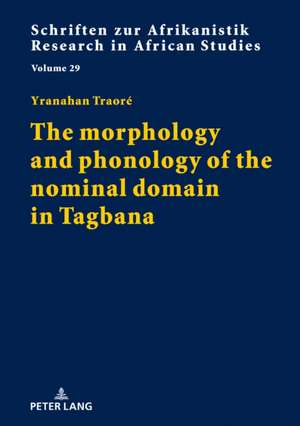morphology and phonology of the nominal domain in Tagbana: Schriften Zur Afrikanistik - Research in African Studies
Autor Yranahan Traoreen Limba Engleză Hardback – 12 mai 2020
Preț: 443.58 lei
Preț vechi: 576.08 lei
-23% Nou
84.88€ • 88.45$ • 70.28£
Carte tipărită la comandă
Livrare economică 03-17 aprilie
Specificații
ISBN-10: 3631798083
Pagini: 252
Dimensiuni: 148 x 210 mm
Greutate: 0.45 kg
Editura: Peter Lang Copyright AG
Seria Schriften Zur Afrikanistik - Research in African Studies
Notă biografică
Yranahan Traoré started his university education at the University Félix Houphouët Boigny of Abidjan in Côte d'Ivoire, where he did a master's degree and a D.E.A. 'Diplôme d ìEtudes Approfondies' in Linguistics. In 2015, he started a doctoral research position in the Research Training Group "Nominal Modification" at the Goethe University, Frankfurt a.M. / Germany, where he did a PhD in Linguistics in 2018. His main interest in the field of Linguistics lies in the interaction between phonology and morphology both from an empirical and a theoretical point of view in understudied languages.
Cuprins
1 Introduction
2 The sounds of Frò¿ò
3 Syllable structure and syllabification
4 Nominal classes and the concord system in Frò¿ò
5 Agreeing/concording morphemes and alliterative concord
6 Nominal derivation in Frò¿ò
7 Compounding and complex noun formation



